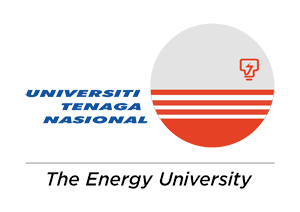How COVID-19 Changes the Gas Market and What is the Implication to Malaysia?
Published on Friday, April 23, 2021On April 28th, 2021, the Institute of Energy Policy and Research (IEPRe), Universiti Tenaga Nasional (UNITEN) has organized a live webinar session entitled ‘How COVID-19 Changes The Dynamics of Gas Market and What Is The Implication to Malaysia’. The speaker of this webinar is Professor Dr. Ken Koyama, the Managing Director of the Institute of Energy Economics, Japan (IEEJ). He is also currently the Chair of Energy Economics of Energy Commission at UNITEN since 7 December 2015.
The live event was moderated by the Head of Publication Unit of IEPRe, Dr. Amar Hisham Bin Jaafar. The webinar commenced at 10.30 a.m. with a brief overview of the statutory functions of IEPRe and the introduction of the speaker, Professor Dr. Ken Koyama.
Professor Dr. Ken Koyama presented the findings from the global gas market study conducted by the IEEJ, which highlights the stability and increasing demand of natural gas and liquefied natural gas (LNG), indicating natural gas/LNG as the preferred energy resource in the world. The speaker reiterated that the natural gas pipeline trade has dominated the gas market in the last two decades. However, the LNG trade was predicted to be higher than the pipeline trade, as LNG trade became more competitive than the pipeline trade.
The speaker highlighted that there has been a steady increase in the LNG import by the OECD Asia from 2000 to 2019. Factors that are responsible for the increasing demand for LNG in Asian countries include the economic growth, the need to protect the environment, natural gas lower price compared to other energy resources, competition against coal, the future of nuclear energy, competition against renewable energy, competition with liquefied petroleum gas (LPG), and the impact of gas/power market reform.
Professor Dr. Ken Koyama emphasized the effect of the COVID-19 pandemic on the gas market since early 2020. He also highlighted the impact of Biden administration policy on the global energy market. Asia, as the gravity center of the world energy demand, is usually affected by any perturbation in the global energy market. He further analyzes the effect of energy geopolitics on Asia and the global energy market. He also highlighted that factors such as waves of carbon-neutral targets and advanced innovative technology for low carbon energy could also have a significant impact on the Asian energy market.
The live webinar had 80 participants from various organizations within and outside Malaysia. The organizers engaged the attendees to send in questions while the webinar was in progress. Among significant questions raised by the attendees include:
1. Does the global oil and gas market predict renewable energy sources as a potential competitor? With higher predictions of future energy demand, and with it we have the SDG goal of sustainability, how may one realize this target if there is minimal significance in the impact of utilizing more towards renewables and instead continue to prioritize conventional fuels such as oil and gas.
2. What lessons can Malaysia learn from the power crisis in Texas?
3. Will the COVID-19 pandemic lead to changes in consumer behaviour which could impact gas demand?
The live webinar ended at approximately 12.15 pm. At the end of the live webinar, the speaker reiterated that the global economy is at its recovery stage. Economic activities are gradually picking up and there was a projected increase in global oil demand in 2021 and 2022.
Although the global gas
was seriously affected because of the impact of the COVID-19, it is expected that the supply of the LNG will gradually attract attention as the global economy recovers.
The slide for this webinar can be downloaded here



